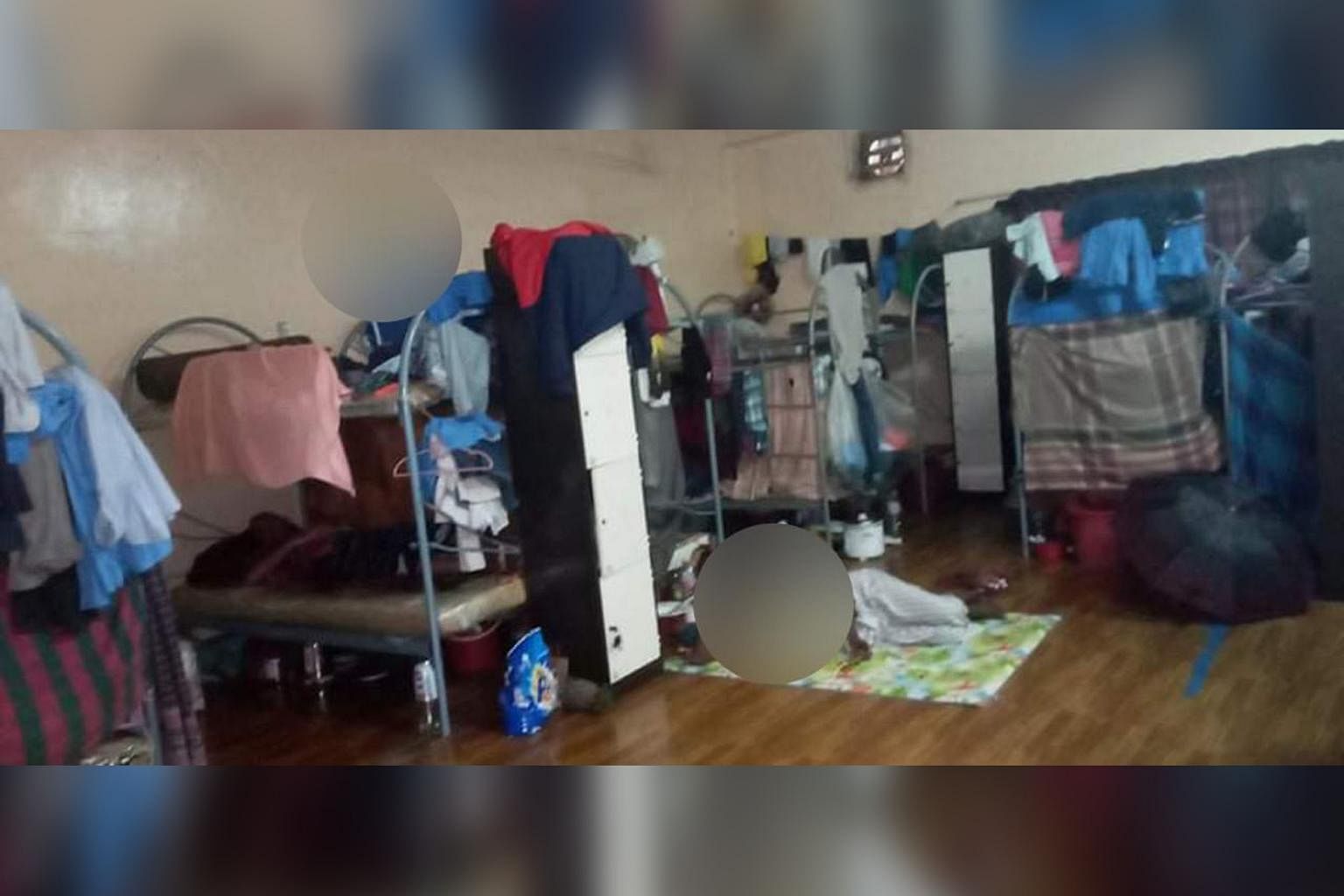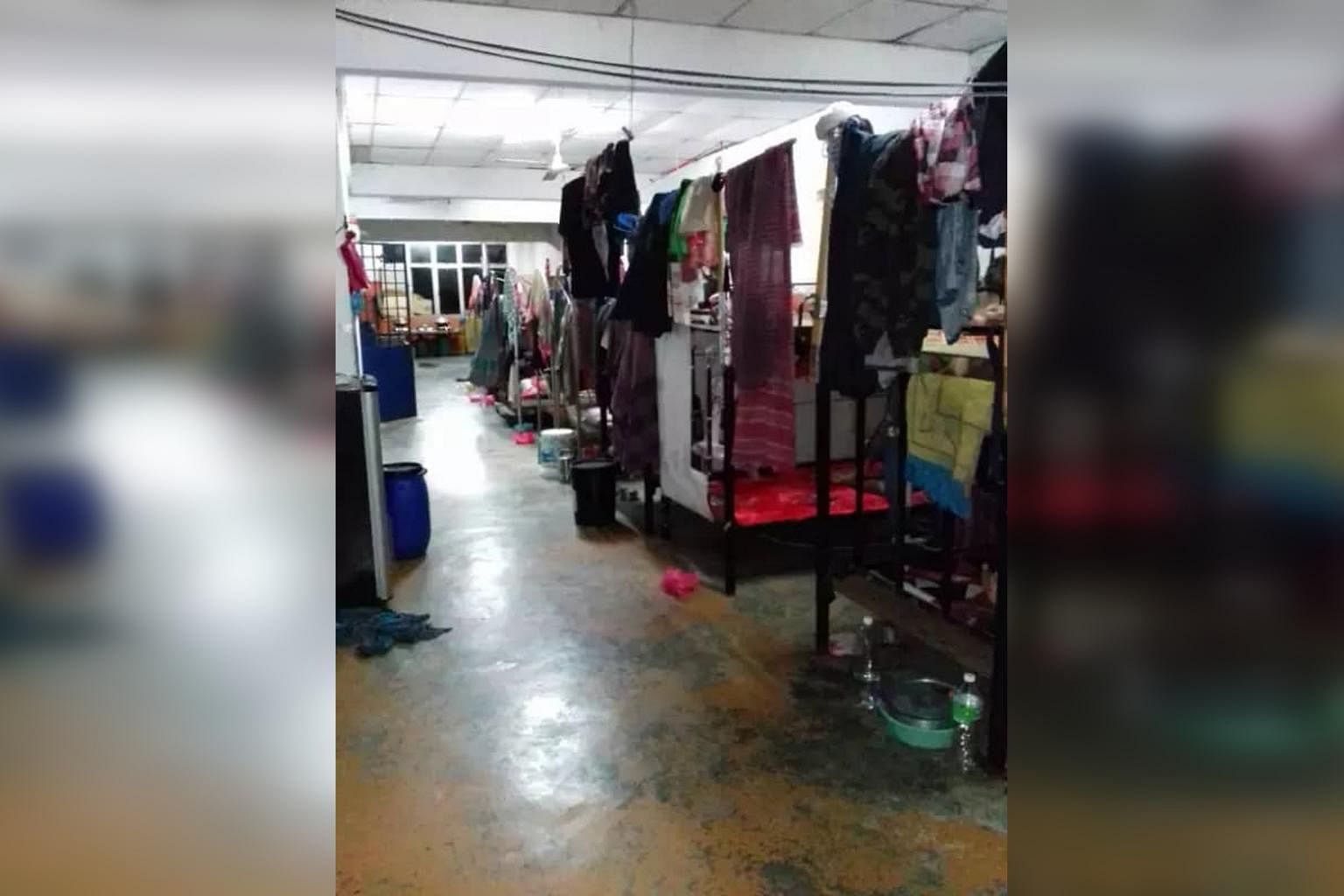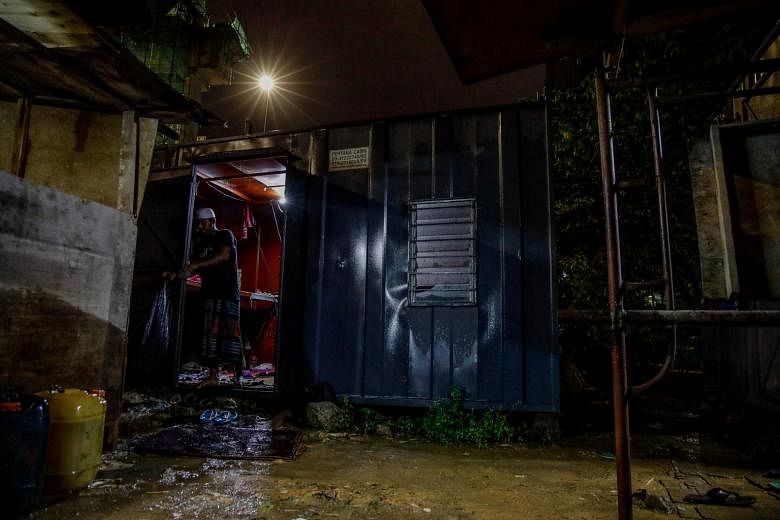KUALA LUMPUR - A production worker at the world's biggest maker of rubber gloves Top Glove lamented that conditions in his Malaysian lodging provided by the company are terrible.
"Each room has about eight to 12 workers, and we share one bathroom," the young migrant worker told The Straits Times, on condition of anonymity.
"I am not comfortable with the accommodation, as there are so many workers in one room and it gets dirty," he said. At times, water wasn't available to clean the bathrooms, he said.
As Malaysian authorities grapple with trying to reduce the number of Covid-19 cases in the country, foreign worker dormitories have emerged as hotbeds for infections.
Daily average cases in Malaysia have mostly remained above 1,000 a day since November, and hit a record 2,188 on Nov 24.
Health experts say that the congested and unsanitary dorms are breeding grounds for the Covid-19 virus.
The Top Glove-linked coronavirus cluster, called the Teratai cluster after the street where many of the company's factories and dorms located, recorded at least 5,083 positive cases out of 6,609 people screened by Monday (Nov 30).
Worse, labour activists say the Top Glove dorms in Klang district in Selangor are the tip of the iceberg for poor conditions in foreign worker housing in Malaysia.
"It is important to note the issues being exposed through the Top Glove case study of abuse are systemic issues across the whole of the Malaysian gloves sector and indeed most migrant labour-intensive sectors of the Malaysian economy," said migrant worker rights activist Andy Hall.

"The conditions in Top Glove are far from the worst; they are actually better than most even," Mr Hall told ST. He shared photos showing hostels at other glove manufacturers, describing them as "appalling" and "terrible".
Top Glove hires 21,000 employees in its plants in four countries, with 11,000 of them migrant workers in its Malaysian factories. They mostly come from South Asian nations such as India, Bangladesh, and Nepal, earning a basic monthly salary starting from around RM1,200 (S$394).
Top Glove's dorms in Klang and its surrounding areas are under a strict lockdown called the Enhanced Movement Control Order, with barbed wire fencing around the compound.
Malaysia on Friday logged 1,141 new daily cases to raise the total to 70,236. There were no new fatalities, with the number of deaths remaining at 376.

Nearly 890,000 foreign workers will be required to undergo Covid-19 screening, which has started, said Senior Minister (Security cluster) Ismail Sabri Yaakob on Tuesday. The government is distributing 100,000 antigen rapid test kits to clinics and hospitals in several states in the first phase of the screenings.
Malaysia has two million foreigners who work legally in the country.
There are an additional two million undocumented migrants according to estimates, and it is unclear how they could be persuaded to take the health screenings.
The government said on Tuesday that it would take legal action against Top Glove after finding that it did not comply with standards for worker accommodations.
Top Glove said it has spent RM20 million in the past two months to improve worker accommodation, and is looking to expand its dorms.
Employers say that they needed more time to comply with government requirements such as housing only six workers per 1,500 sq ft. The government has warned that those who fail to do so will be fined RM50,000 per worker.
"The condition of workers' housing may not be as good as it should be. But employers need time," Malaysian Employers Federation executive director Shamsuddin Bardan told ST. "Even to meet the requirements at the end of next year would be a challenge due to the economic slowdown."













